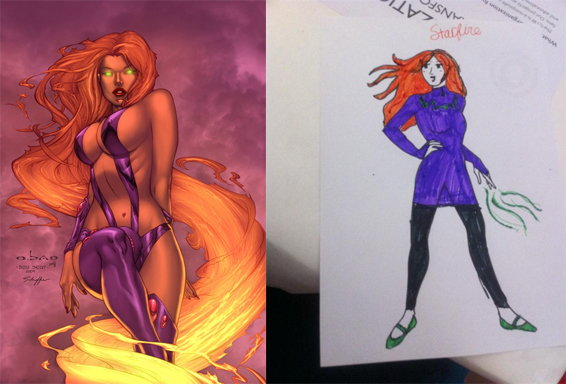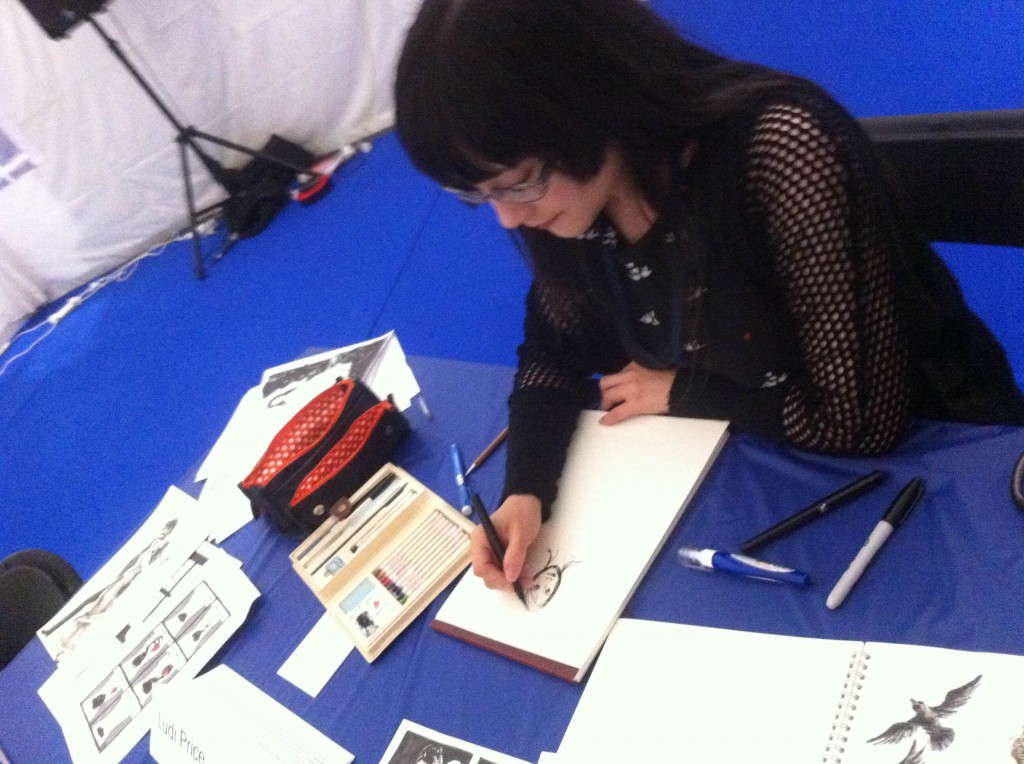This year was the 72nd World Science Fiction Convention, which took place at the ExCel Centre in London over five hectic and fun-filled days (#Loncon3). I felt it my duty to go there, both as a fan and as a research student (field observations being a must, don’t you know?), and thanks to the most excellent Con or Bust initiative, I was able to get a free membership. I managed to make two action-packed days (the Thursday and Saturday), which gave me much food for thought – that is, when I could actually sit down and get a moment to sit down and ponder. What struck me most about my time at Loncon was the realisation that fans are not homogeneous – just like any microcosm of humanity, fans have different values, morals, points of view, creeds, colours, sexual orientations and political agendas. And of course, fandoms. There can be genuine moments where a fan is rambling on about something they are passionate about, whilst you’re there thinking “What on earth are they talking about?”, even if you consider yourself a fellow geek. Or you might be the one sitting there, rabbiting on, whilst others are staring at you blankly. Yeah, I got that a few times. But it was fine, because it reminded me that too often in fan or media studies, there is a tendency to think of fans as one homogeneous whole that thinks the same. This is not true, and, as I am finding out, it is therefore not true about the ways that fans (or fan communities) approach or engage in information behaviour.
I was at the con right from the start, as I was participating in a fan arts and crafts event in the afternoon (and was, for my sins, helping set up the Transformative Fanworks tent). For an hour I sat at a table, demonstrating my limited artistic skills and showcasing my work. Many fans sauntered past with minimal interest (Rogue & Gambit shippers are a fairly rare breed in the fan world, or so I’ve come to learn). But I was surprised and pleased when two lovely girls from America came and chatted to me about my work and the Rogue & Gambit fandom, and showed an interest in following my Tumblr page. There was an interesting conversation on copyrights and IP, wherein I explained that I don’t sell prints of my fanart on deviantART as I don’t own the rights to franchises I draw from. They seemed surprised at this. “We buy that stuff all the time,” they said. “We can just get it from anywhere. Does that mean we’re doing something illegal?” Well, yeah, technically. I tried to explain about the difference between selling fanart on the internet via a third party (they have to cover their proverbial backsides after all), and selling to friends or at a convention. But young fans aren’t really interested in that stuff. They want their fanworks, and they’ll get them whatever the means. The internet has made ‘reapproriated’ works so readily available to fans that copyright is hardly an issue to youngsters who have grown up in an information free-for-all. It does make one wonder whether notions of IP will slowly die out with the next generation.
On Saturday afternoon, Megan Waples and I held what was intended to be a redesign contest for sexist superheroine costumes. Unfortunately this wasn’t in the programme as we’d cooked it up too late for it to be sent to print, and so we abandoned the idea of a contest and left the design silhouettes out throughout the day for anyone to do. After a slow start we managed to get quite a lot of interest and ended up with a lovely pile of redesigns! In fact, the project got such a lot of positive feedback from participants that we figured we could scan in the whole lot and start a Tumblr blog on it; and not only that, but to open the blog to submissions so that anyone can create a redesign, and raise awareness about the issue. This idea also achieved some interest from fans and hopefully will be implemented once the pictures are all scanned in.

Starfire comics costume (left); and costume design from Loncon3, by Megan Waples (right).
Saturday evening brought with it the chance to attend the Researching Fans: Fan Studies and Fan History academic panel, which was enlightening. The panel focused many on the problems of studying fans – apart from issues arising from generalisation of fans and their heterogeneity, there were also very interesting discussions around the continued suspicion of fan-related studies in the academy, and the pitfalls inherent in studying fans as an acafan (academic fan). Many fan scholars are still coming up against complete ignorance of fandom from their peers, and there is an assumption that acafans should ‘dress up’ their research in academic language in order to make it more accessible to the scholarly community. There was also the question of whether fan research – a finished dissertation, article or thesis, for example – could be considered a fanwork in its own right; whether this implies a lack of rigour and distance from the subject; and whether that in any way lessens its importance as a piece of scholarly literature.
I left the panel with my head swimming – too many thoughts, too many things to digest. Fan studies is essentially multi-disciplinary. It touches so many parts of our lives, and we can look at it from the perspective of cultural studies, media studies, games studies, sociology and psychology, to name but a few disciplines. This is an area of study that can impact so many people’s everyday lives; and vice versa. In my research I am hoping to look at fans from an LIS perspective, and this is yet another aspect of fan life that has been ignored and which, I think – or at least, hope – is and will come even more to the fore in future years.
After the panel I was able to finally meet some lovely Fan Studies Network people, and over a few drinks we got some discussion in about fan information behaviour and the dubious joys of Tumblr tagging. In fact, Tumblr managed to wheedle its way into several conversations over the time that I was at the con. The more I think about it, the more Tumblr is the new place for fandom, as more and more fans young and old adopt it as a flexible place for showcasing a myriad of fanworks such as fanfiction, fanart, animation, videos, news, quotes and essays. It is this flexibility of use and content that makes Tumblr such a godsend to fans. You can write a collaborative fanfic and track its progress with amazing ease; you can reblog and share content with just a simple click; you can write whole essays or express your opinions just through the tags alone (and I’ve seen tags that are longer than the actual posted content!). Whole projects can be realised in very little time. And this goes for the negative as well as the positive. Flame wars and ruckuses can evolve just as quickly as a full-blown artistic endeavours.
It will take me some time to digest everything I’ve learned at Loncon, but what I will definitely be taking away are some interesting approaches to researching fandom, as well as some fascinating thoughts about how tagging and folksonomies facilitate fandom; and last but not least, I’ll remember it for some great new friendships.
